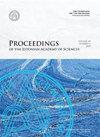在结构约束下实施以人为本:一例HPV疫苗接种
IF 0.7
4区 综合性期刊
Q3 MULTIDISCIPLINARY SCIENCES
引用次数: 0
摘要
. 以人为本据称是医疗保健的目标之一,将人置于医疗保健(服务)的中心。然而,在有限的结构支持下,在执行中预期和强调个人责任。这导致了这样一种情况,尽管HPV疫苗接种是最有益的预防方法,但12-14岁女孩的接种率低于建议的70%。该研究的目的是分析在全球大流行的情况下,女孩目标群体的父母和服务提供者在HPV疫苗接种方面所经历的结构性限制。采用定性方法,即对护士和助产士进行深度访谈(n = 18),对12-14岁女童家长进行3次焦点小组访谈(n = 13),并采用归纳与演绎相结合的主题文本分析方法。这项研究获得了伦理许可。研究结果表明,对于父母来说,主要的挑战是能否找到相关的支持性信息来做决定。护士面临的挑战是找到适当的方法,为父母和女孩提供咨询和支持。这项研究表明,缺乏一项全国性战略是支持在外部情况下继续进行必要的预防性活动的薄弱环节之一。此外,应提高咨询技能和开发针对特定目标群体但又针对国家和文化的创新交流和教育数字工具,因为这可能导致更多以人为中心的宫颈癌预防保健服务。本文章由计算机程序翻译,如有差异,请以英文原文为准。
Implementation of person-centredness under structural constraints: a case of HPV vaccination
. Person-centredness is claimed to be one of the aims of healthcare, placing the person at the centre of healthcare (services). However, individual responsibility is expected and stressed in the implementation with limited structural support. This has led to the situation where despite the availability of HPV vaccination as the most beneficial preventive method, the coverage for girls aged 12–14 is below the recommended (>70%) rate. The objective of the research was to analyse structural constraints experienced by parents and service providers of the target group of girls regarding HPV vaccination under the circumstances of a global pandemic. Qualitative methods were used, namely in-depth interviews (n = 18) with nurses and midwives and three focus group interviews (n = 13) with parents of girls aged 12–14 years, as well as thematic textual analysis with the combination of inductive and deductive analysis methods. The research was granted ethical permission. The results outline that for parents the main challenge is the ability to find relevant supportive information for decision-making. For nurses, the challenge is to find appropriate ways to counsel and support parents and girls. The study revealed the lack of a country-wide strategy as one of the weak links in supporting the continuation of necessary preventive activities despite the external situation. Also, the skills of counselling and development of innovative communicative and educational digital tools that are target group specific yet also country-and culture-specific should be improved, as this may lead to more person-centred healthcare service for cervical cancer prevention.
求助全文
通过发布文献求助,成功后即可免费获取论文全文。
去求助
来源期刊

Proceedings of the Estonian Academy of Sciences
综合性期刊-综合性期刊
CiteScore
1.80
自引率
22.20%
发文量
24
审稿时长
>12 weeks
期刊介绍:
The Proceedings of the Estonian Academy of Sciences is an international scientific open access journal published by the Estonian Academy of Sciences in collaboration with the University of Tartu, Tallinn University of Technology, Tallinn University, and the Estonian University of Life Sciences.
The journal publishes primary research and review papers in the English language. All articles are provided with short Estonian summaries.
All papers to be published in the journal are peer reviewed internationally.
The journal is open to word-wide scientific community for publications in all fields of science represented at the Estonian Academy of Sciences and having certain connection with our part of the world, North Europe and the Baltic area in particular.
 求助内容:
求助内容: 应助结果提醒方式:
应助结果提醒方式:


